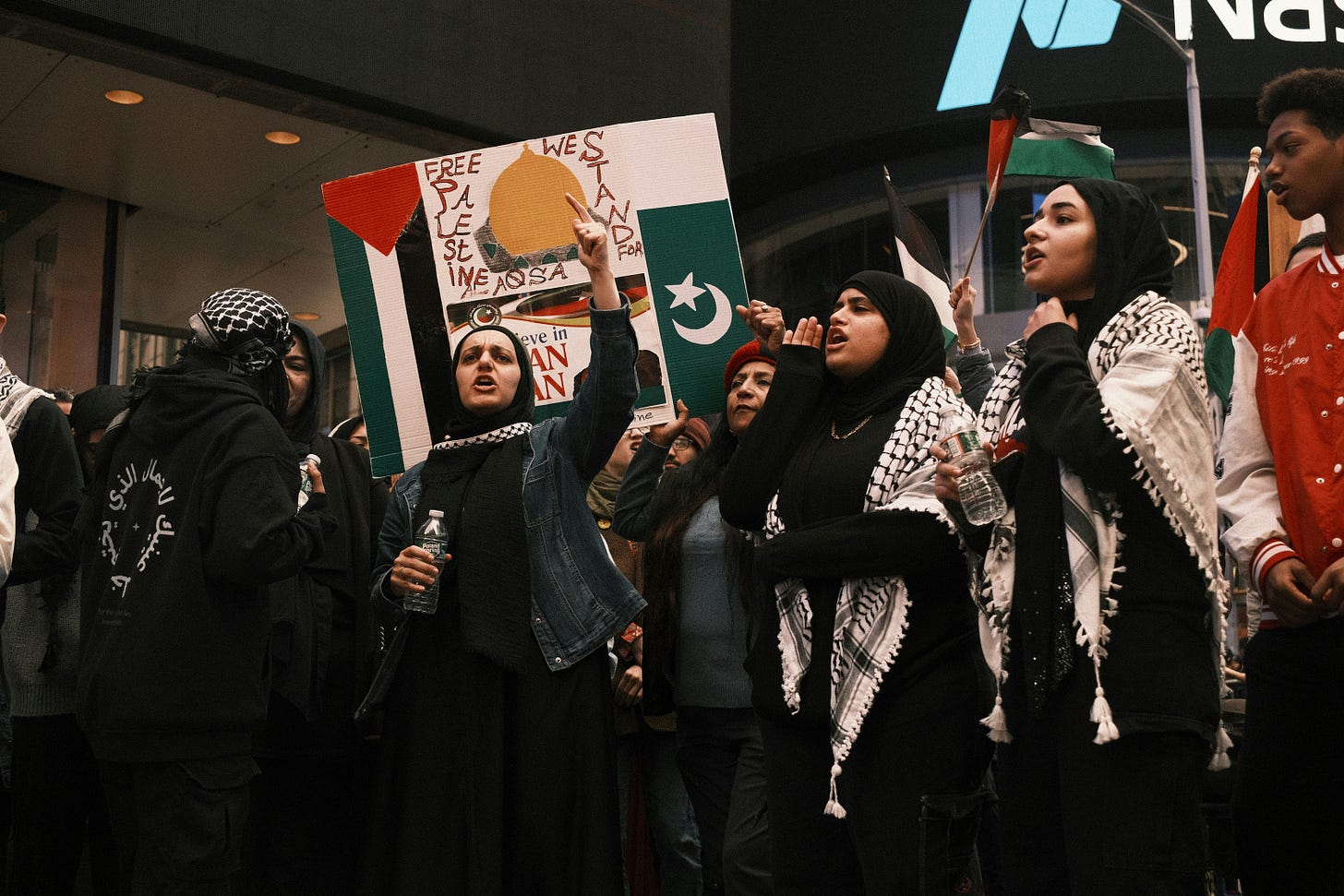BONUS ESSAY: Should I React to Charlie Kirk’s Death as a Muslim Mother and Journalist?
The America I sensed as a child, quietly simmering beneath the surface, has become frighteningly tangible for my kids today. Do parents like me keep our heads down as our parents once did?
After Charlie Kirk was killed, videos began popping up on social media of black and brown folks making skits of themselves staring at their computers, sighing with relief when the news confirmed the shooter wasn’t one of them. The punchline was always the same—thank God it was a white guy.
For Muslims, that relief doubled. Relief that the murderer wasn’t Muslim. Relief that, for once, an act of violence wouldn’t immediately trigger collective blame. But the feeling was fleeting. Because if there’s one thing Muslims in America have learned since 9/11, it’s that relief never lasts. The narrative always shifts, and it rarely shifts in our favor.
Kirk was openly Islamophobic, openly making comments such as “Islam is a means to the end of destruction in the West.” He built a platform on hate speech, turning Muslims into props for his political theater. And now he was dead—allegedly shot by a 22-year-old white man whose violence is already being softened in headlines. I didn’t feel sorrow for him. What I felt was fear for us. Fear of what his death would mean for people like me—for my daughters, who are Muslim, brown, and growing up in a country where political violence is not an exception but a language.

Since becoming a mother in 2020, every headline feels personal. MAGA has only grown louder, more violent. Journalists like Karen Attiah and celebrity comedians like Jimmy Kimmel are punished for naming truths, while men like Kirk are sanctified in death. What terrifies me is not only how far white supremacy has spread since I was growing up as the child of immigrants who was told to keep her head down, but how much deeper it has sunk its roots in the years my daughters have been alive.
Some Muslim leaders have offered clarity. Dr. Omar Suleiman put it plainly, “I don’t condone his killing. I won’t participate in his mourning.” Neither celebration nor sanctification—just truth. Dr. Yasir Qadhi underscored that violence is never a solution while pointing to America’s hypocrisy—exporting violence abroad, then feigning shock when it returns home. Their words resist pressure from the Right, which seeks our silence in sanctifying Kirk, and from the Left, which demands partisan outrage. Neither path aligns with Islamic principles. The prophetic ethic is dignity without distortion, compassion without complicity, truth without performance.
The timing of Kirk’s death—the day before the anniversary of 9/11—forces reflection. That day, nearly a quarter-century ago, reshaped Muslim existence in America. Suspicion replaced trust. Airports became sites of humiliation. Mosques fell under surveillance. Ordinary Muslims were forced to prove loyalty just to live. Kirk’s killing is not another 9/11, yet its timing is a warning. Narratives of violence can reshape public perception overnight. After 9/11, Muslims were blamed for an act they had not committed. Today, we risk being scapegoated if we do not mourn loudly enough, or dragged into debates where silence would have been wiser.
There is also the matter of language. The suspect has been identified as a 22-year-old white man, Tyler Robinson. Notice what has not been said: the word “terrorism.” The coverage is sanitized, framed as a tragedy without ideology. Had the suspect been Muslim, terrorism would already be plastered across screens. Communities would be summoned to condemn. Young Muslims would brace for surveillance and suspicion in schools and workplaces. This silence is not neutrality; it is complicity in a double standard so entrenched it barely registers as shocking. In America, terrorism is not defined by the act, but by the perpetrator’s profile. And now because Robinson’s romantic partner is reportedly in the middle of transitioning from female to male, the FBI is coming after the trans community based on this alleged motive.
It is impossible to separate Kirk’s end from the culture he fueled. For years, he glorified weapons, demonized minorities, and cast Muslims as enemies. He defended wars that devastated Muslim lands while normalizing suspicion at home. He fed a climate of violence that eventually turned inward. To acknowledge this is not to celebrate his killing—Islam forbids rejoicing in death.
As they grow up, will my daughters be asked to mourn men who never saw them as fully human? To perform loyalty whenever violence erupts? Or will they find the courage to resist the scripts imposed on Muslim Americans for generations?
My responsibility is to prepare them: to remind them that compassion does not mean complicity, that silence can be strength, and that truth must be told even when the world refuses to hear it. Raising second-generation Muslim daughters in America is not only about keeping them safe. It is about raising them clear-eyed and principled, unafraid to name what others refuse to see.


I had a similar reaction when he was shot. I hoped he wouldn't die, not because I cared for him (though also did not wish him physical harm), but because I knew his death would be weaponized against the left and vulnerable communities.
“I don’t condone his killing. I won’t participate in his mourning.”
Amen.